Will same-sex marriage change anything for transgender Aboriginal Australians?

On Thursday, Australia finally passed equal marriage into law, to tears, songs and massive celebration. But for some LGBT Australians, same-sex marriage is far from a priority.
The Tiwi Islands, north of Australia, are inhabited by indigenous Tiwi people. Their population of 2500 has one of the largest concentrations of transgender people in the country.
The Sistagirls, a community of Tiwi transgender women who are fighting for recognition and rights for LGBT Aboriginal people, spoke about their view on the vote.
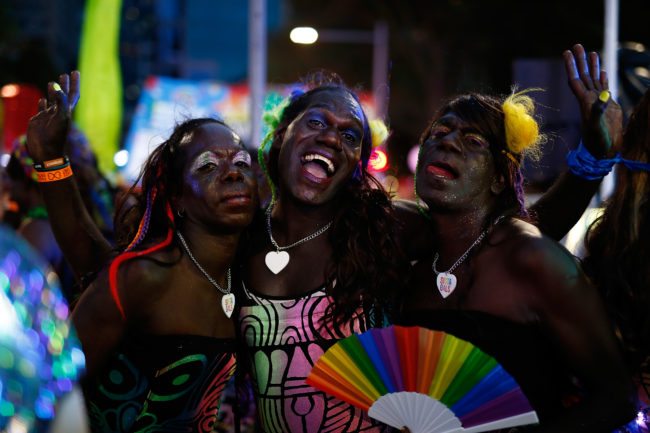
Sistagirls at Sydney Gay and Lesbian Mardi Gras 2017 (Photo by Zak Kaczmarek/Getty Images)
Sistagirl Jason de Santis said they had to be cautious about publicly celebrating the vote, as it is not accepted by many of the community.
“We have to protect ourselves, and celebrating something like that makes us feel vulnerable so we have to be really careful.”
Moreover, they said that while it was nice to see acceptance in wider Australia, on the Tiwi Islands and in other Aboriginal communities, it wouldn’t make much difference, and they had much bigger issues that need addressing.
“We’ve got huge welfare problems up here in the Territory,” Santis said.
“There’s a huge gap in regards to health for gays, lesbians, transgender, intersex, queers in the Territory, especially in remote areas.”
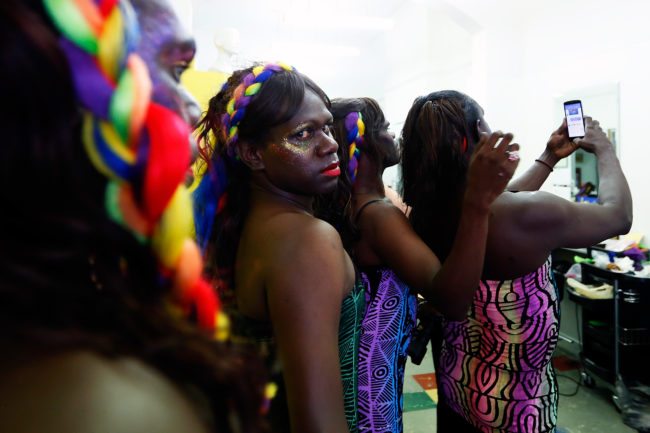
Sistagirls at Sydney Gay and Lesbian Mardi Gras 2017 (Photo by Zak Kaczmarek/Getty Images)
The Sistagirls community in particular has had to fight for decades to gain acceptance in the Tiwi community, during which time two of their number committed suicide.
It was these deaths, fifteen years ago, that inspired the Sistagirls to demand recognition.
“We had a community meeting and one of the families wanted to know how the suicides happened, and basically they were all too blind to see that it was name-calling, that it was discriminating against her sexuality,” Sistagirl Nyarli Kerinaiua told Buzzfeed.
“As the years go by we have slowly worked our way up, building our confidence and just basically being out and living life as the Tiwi sistergirls.”
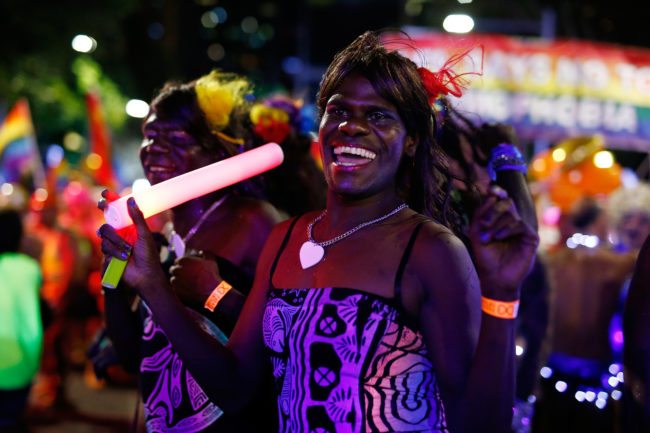
Sistagirls at Sydney Gay and Lesbian Mardi Gras 2017 (Photo by Zak Kaczmarek/Getty Images)
30 Sistagirls crowdfunded earlier this year, to attend Sydney Mardi Gras, and show off the beauty of the Tiwi transgender community.
“To go to the Mardi Gras is to showcase our culture and our people, how Tiwi people evolved in this generation and how we became stronger in our community,” Sistagirl Crystal Johnson said.
Now that they have acceptance, they want to push for resources in their remote community, particularly medical treatment. Many have been hoping to receive hormone treatment for most of their lives, but at the moment they would have to travel thousands of miles to the city to get it.
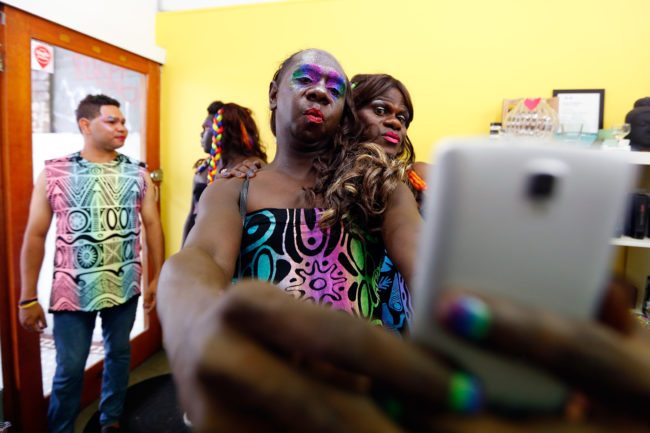
Sistagirls at Sydney Gay and Lesbian Mardi Gras 2017 (Photo by Zak Kaczmarek/Getty Images)
They also campaign for political power and education. When the referendum was first announced, the Sistagirls spoke out against the way it was conducted.
They said that Aboriginal views would be underrepresented, as many of them would be unfamiliar with the postal format.
“I think it’s rubbish really, they’re just wasting their time,” said Sistagirl Shaun Kerinaiua.
“It’s a bit frustrating that there is a website that needs to be used to register — a lot of our people are not literate, we are not up to standard education-wise, I think it’s all just horrible.”
They said that Tiwi people were familiar with using polling stations for federal and local elections, and it would’ve been more inclusive to continue the simple process people already knew.
“We speak eight, nine, 10 different languages and there are Indigenous people who don’t speak English,” said Johnson.
The Sistagirls said some of the money invested in the postal vote process should’ve gone towards making sure Indigenous people understood the vote.
Although some steps were taken, such as producing videos explaining the vote, and sending groups out to the Territories to show them, the Sistagirls believed it would not be enough.
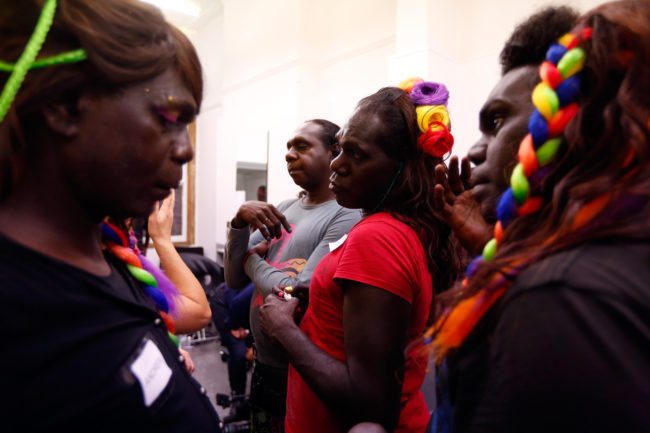
Sistagirls at Sydney Gay and Lesbian Mardi Gras 2017 (Photo by Zak Kaczmarek/Getty Images)
And their concerns were proved correct – in the Indigenous community of Ramingining, 50 forms were burned when the people mistakenly believed it was asking whether or not a man should be “compelled” to marry another man.
The electoral district of Lingiari, which has the largest indigenous population in Australia, also had a significantly lower turnout than any other district, with 50% voter participation, in comparison to the national average of 77%.
However the Sistagirls still worked hard on the Yes campaign in their community, holding group discussions and helping with translations, and are excited by the symbolism of the result.
“I’m a black queen and I have a dream, I am an LGBTIQ Aboriginal Torres Strait Islander and I have a dream to be married to a Tiwi man,” Johnson said.

